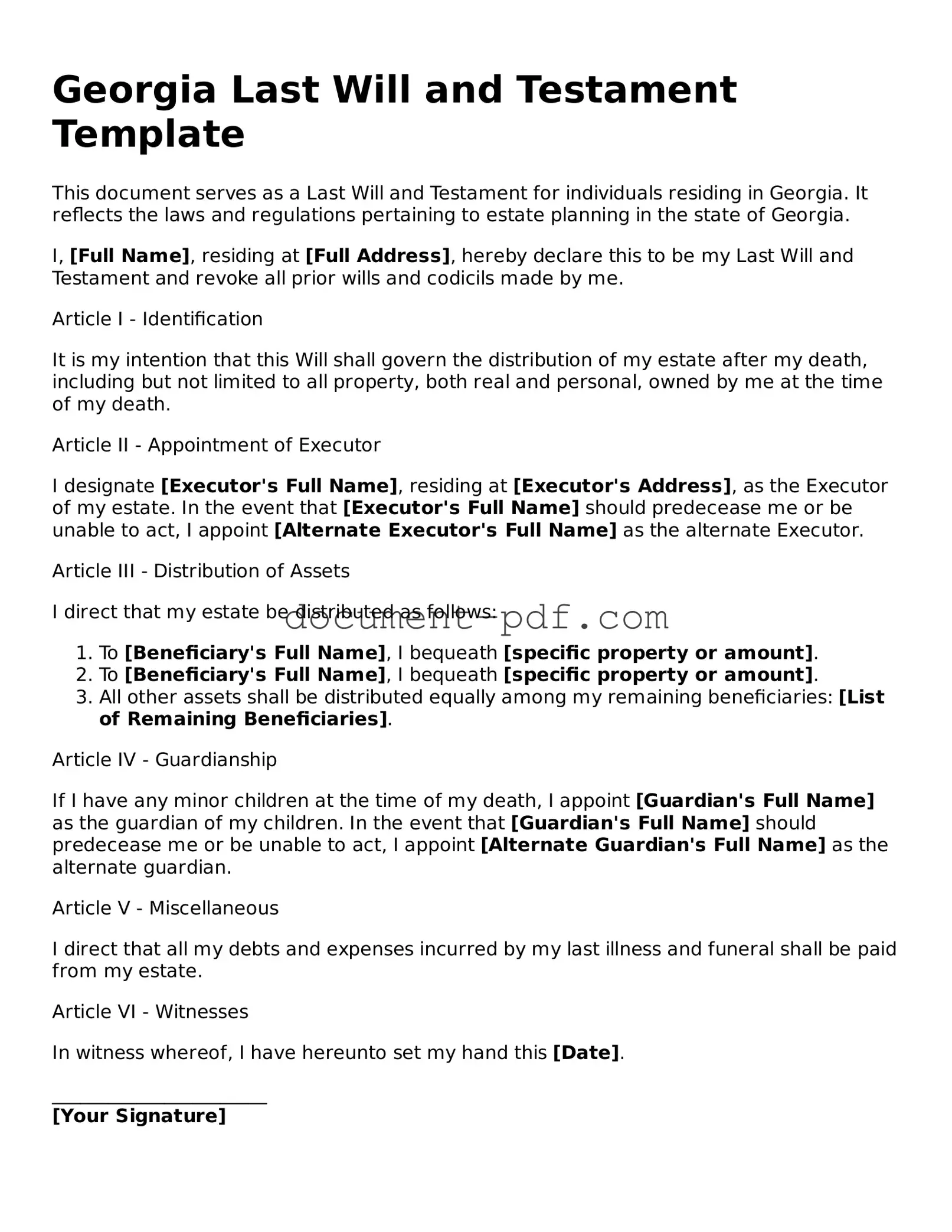Attorney-Verified Georgia Last Will and Testament Template
A Georgia Last Will and Testament form is a legal document that outlines an individual's wishes regarding the distribution of their assets after death. This form allows individuals to specify beneficiaries, appoint an executor, and make other important decisions regarding their estate. To ensure your wishes are honored, consider filling out the form by clicking the button below.
Access Last Will and Testament Editor Here

Attorney-Verified Georgia Last Will and Testament Template
Access Last Will and Testament Editor Here
Finish the form without slowing down
Edit your Last Will and Testament online and download the finished file.
Access Last Will and Testament Editor Here
or
Click for PDF Form
